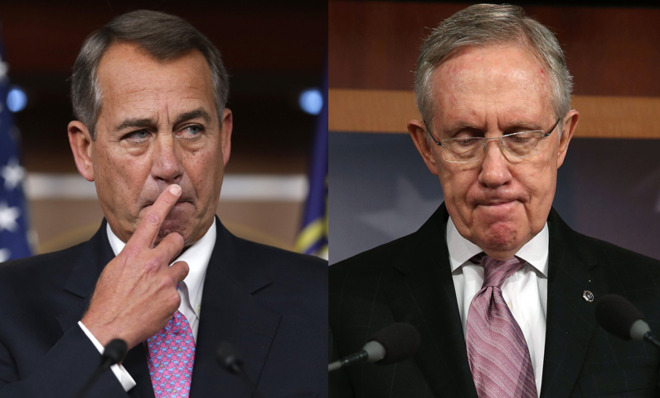Will the 2014 midterms be a wave election?


A free daily email with the biggest news stories of the day – and the best features from TheWeek.com
You are now subscribed
Your newsletter sign-up was successful
As Republicans shut down the federal government in early October and took a pummeling in the opinion polls, many Democrats started to talk about the possibility — even the likelihood — that they would take back control of the House of Representatives.
But that narrative crashed as quickly as Healthcare.gov. Republicans said they were vindicated that the Affordable Care Act didn't work and that the federal government had no business running a health care exchange. They started counting the Senate seats they would win by hanging the issue around the necks of Democratic incumbents.
Who's right?
The Week
Escape your echo chamber. Get the facts behind the news, plus analysis from multiple perspectives.

Sign up for The Week's Free Newsletters
From our morning news briefing to a weekly Good News Newsletter, get the best of The Week delivered directly to your inbox.
From our morning news briefing to a weekly Good News Newsletter, get the best of The Week delivered directly to your inbox.
Political Wire recently talked to political scientist John Sides about his new forecasting model for the 2014 midterm elections. It’s based on historical data going back to 1952 and uses both national indicators and district-level data.
Sides sees no big wave coming and only a small shift of seats in the House, most likely to the Republican side of the aisle. One reason for that: There just aren’t enough toss up seats that Republicans have a chance to win. They won most of those seats during the 2010 wave that brought them control of the House.
Sides acknowledges that it’s early and the result may change in the coming months. But he points out that this type of electoral forecasting doesn’t overreact to news stories like the government shutdown or the bungled ObamaCare rollout. It's an important lesson for anyone reading political news.
Listen to the whole interview. It’s fascinating.
A free daily email with the biggest news stories of the day – and the best features from TheWeek.com
Subscribe via iTunes or RSS to get podcast episodes automatically downloaded.
Taegan D. Goddard is the founder of Political Wire, one of the earliest and most influential political websites. He also runs Wonk Wire and the Political Dictionary. Goddard spent more than a decade as managing director and COO of a prominent investment firm in New York City. Previously, he was a policy adviser to a U.S. senator and governor. Goddard is also co-author of You Won — Now What? (Scribner, 1998), a political management book hailed by prominent journalists and politicians from both parties. Goddard's essays on politics and public policy have appeared in dozens of newspapers across the country, including The Washington Post, USA Today, Boston Globe, San Francisco Chronicle, Chicago Tribune, Philadelphia Inquirer, and Christian Science Monitor. Goddard earned degrees from Vassar College and Harvard University. He lives in New York with his wife and three sons.
